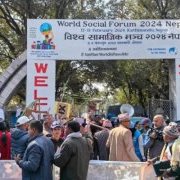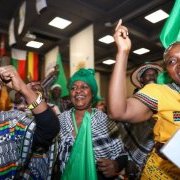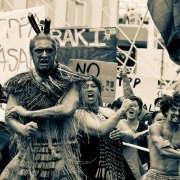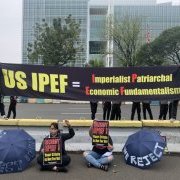18-Mar-2024
US Department of Commerce
18-Mar-2024
US Department of Commerce
18-Mar-2024
US Department of Commerce
15-Mar-2024
The Straits Times
United States President Joe Biden’s signature economic initiative in the Asia-Pacific has made “significant strides” in the past two years and is now moving into the implementation phase, said US Commerce Secretary.
13-Mar-2024
Local Futures
Together with GRAIN, Local Futures organized the aforementioned workshop ‘Resisting Free Trade Agreements in South Asia’, which brought together activists from South Asian countries to confront the massive proliferation of free trade agreements
16-Nov-2023
The Jakarta Post
During the Indo-Pacific Economic Framework Ministerial Meeting (IPEF-MM) on Nov. 14, all IPEF member countries agreed to announce the substantive completion of Pillars III (Clean Economy) and IV (Fair Economy). Pillar II (Supply Chains) had already been completed at the Second Ministerial Level Meeting in Detroit, the United States.
13-Nov-2023
Business Mirror
The Philippines has chosen its negotiators to champion the country’s interests under the trade pillar of the Indo-Pacific Economic Framework for Prosperity (IPEF).
8-Sep-2023
Australian Government








